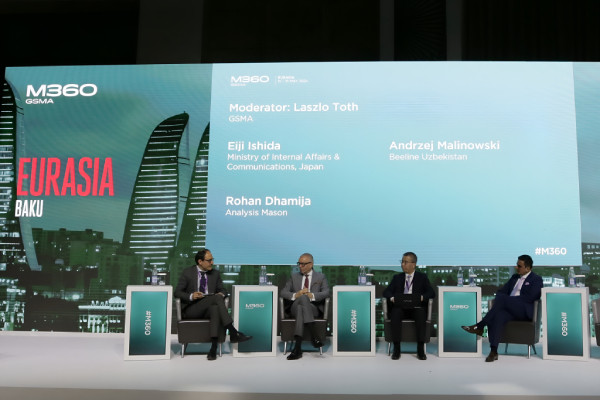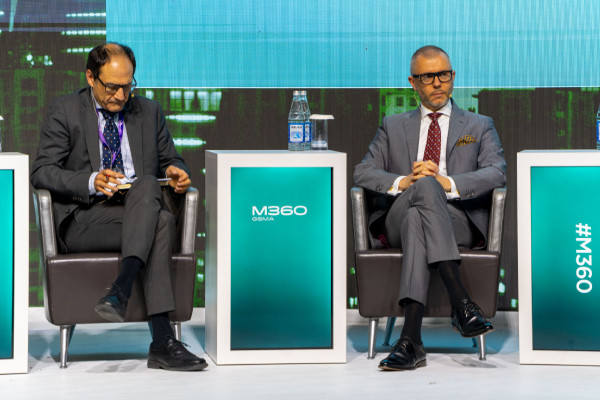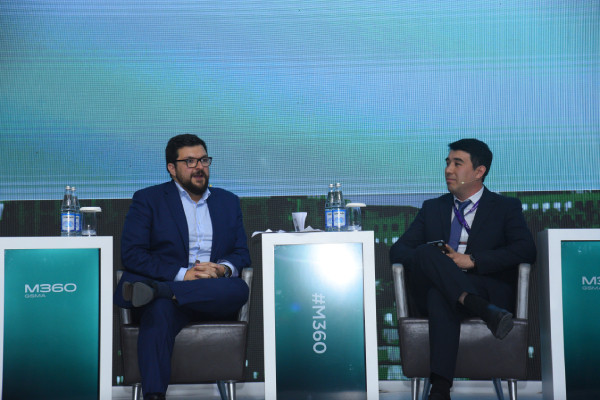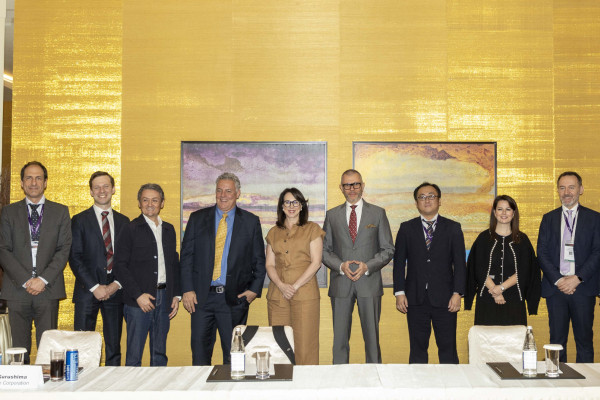Tashkent, Uzbekistan (UzDaily.com) -- The international conference GSMA M360 Eurasia 2024, which took place in Baku, brought together key political and regulatory figures from both regional and international arenas, alongside executives from leading corporations in the mobile and digital sectors such as 5G, Cyber Security, AI, and green technology, to support and catalyze the ongoing digital transformation across CIS countries and neighboring regions.
According to the latest GSMA Mobile Economy Eurasia report presented at the conference, by 2030, over 50% of mobile connections in Eurasia will be on 5G networks. Tair Ismailov, Strategic Engagement Director at GSMA, added that by 2030, smartphone penetration will reach 93–95%.

He stated that Uzbekistan will become one of the regional leaders in terms of digital technology development. However, he also noted the challenge related to the taxation of the telecommunications sector in the country, which is higher than in many European and Asian markets. It is important for the industry to collaborate with the regulator to build the digital environment and meet the 2030 goals.
Beeline Uzbekistan actively participated in the conference, and Andrzej Malinowski, the CEO of the digital operator, spoke at the "Policies for Thriving Connectivity Ecosystem" panel session. He also attended the "GSMA CEO Roundtable," which included telecommunications sector leaders from Uzbekistan, Kazakhstan, Kyrgyzstan, Azerbaijan, and Mongolia, as well as GSMA representatives.
How do you see the evolution of the role of telecommunications companies in the era of digital transformation, especially considering the topics discussed at the M360 Eurasia conference?
Andrzej Malinowski: Mobile networks have been playing an instrumental role in digital transformation as a fundamental component of any digital ecosystem. In that aspect, evolution is built on connection quality and speed, but also on relevance versus customer needs. Mobile companies should understand and explore the opportunities beyond what is commonly known as core connectivity and provide the most needed services: education, entertainment, and financial services. This requires a shift in the mindset of telecom operators, but it should not overshadow the key component of being reliable networks.

How do you think the telecommunications industry's expanding integration of artificial intelligence technology will affect Beeline Uzbekistan's plans and services?
Andrzej Malinowski: AI has been with us for a while, but its importance grows significantly with new ways of application. We have to be mindful of the fact that AI is still being built and developed by humans, and education in that area is crucial for not leaving anyone behind. Beeline Uzbekistan has been researching the best way to bring this technology to our country, predominantly focusing on educating local specialists on how to use it for greater good. We have been looking into numerous initiatives with international partners and other companies of the VEON Group. The most recent example from one of VEON's operations in building a large language model for a local language inspires us to search for relevant applications of AI in Uzbekistan. Again, we sincerely believe that making AI knowledge commonly available is crucial for its wider applications, and we hope to be able to address this matter soon.

Could you tell us about Beeline Uzbekistan's approach to cybersecurity and how the company is adapting to combat emerging threats in an increasingly interconnected landscape?
Andrzej Malinowski: Cyber Security is all about protecting the trust of our customers. One million users of our digital financial services, provided via the Beepul app, have to be absolutely sure that their data and transactions are secure and safe, no matter what. Beeline Academy is focused on educational aspects of Cyber Security, and this aspect is also very important to us. We will continue our mission of teaching students, university and school teachers, and other professionals by providing courses and grants in order to gain proficiency in this area, in parallel with putting maximum effort into providing a top-notch secure environment for our customers."

Dilmurod Dusmatov, Secretary of the Republican Council on Radio Frequencies and Head of Spectrum Regulation Department at the Ministry of Digital Technologies of Uzbekistan, also participated in the session. He emphasized the importance of operators working together for the sector's effective development and outlined plans for spectrum development to 2030:
"For operators, it is crucial to take advantage of resource sharing opportunities. Only by agreeing among themselves can they make the sector more efficient and accessible to all. Operators should look to the future, define goals for the next 10–15 years, and align their service planning with global trends as new technologies arise swiftly. The regulator will always support operators within its competencies, drawing on global experience. In addition to the existing spectrum allocations, Uzbekistan plans to open access to some standardized spectra from the 3GPP (a project that brings together leading organizations in mobile communication development) and deploy frequencies in the mid- and millimeter-wave ranges to support broadband services, IoT, and M2M. A roadmap for spectrum allocation is also being developed, which includes frequencies discussed within the agenda of the World Radiocommunication Conferences until 2027 and the subsequent five years until 2030."
The GSMA M360 Eurasia 2024 conference highlighted the importance of innovation and collaboration in accelerating digital transformation across Eurasia.